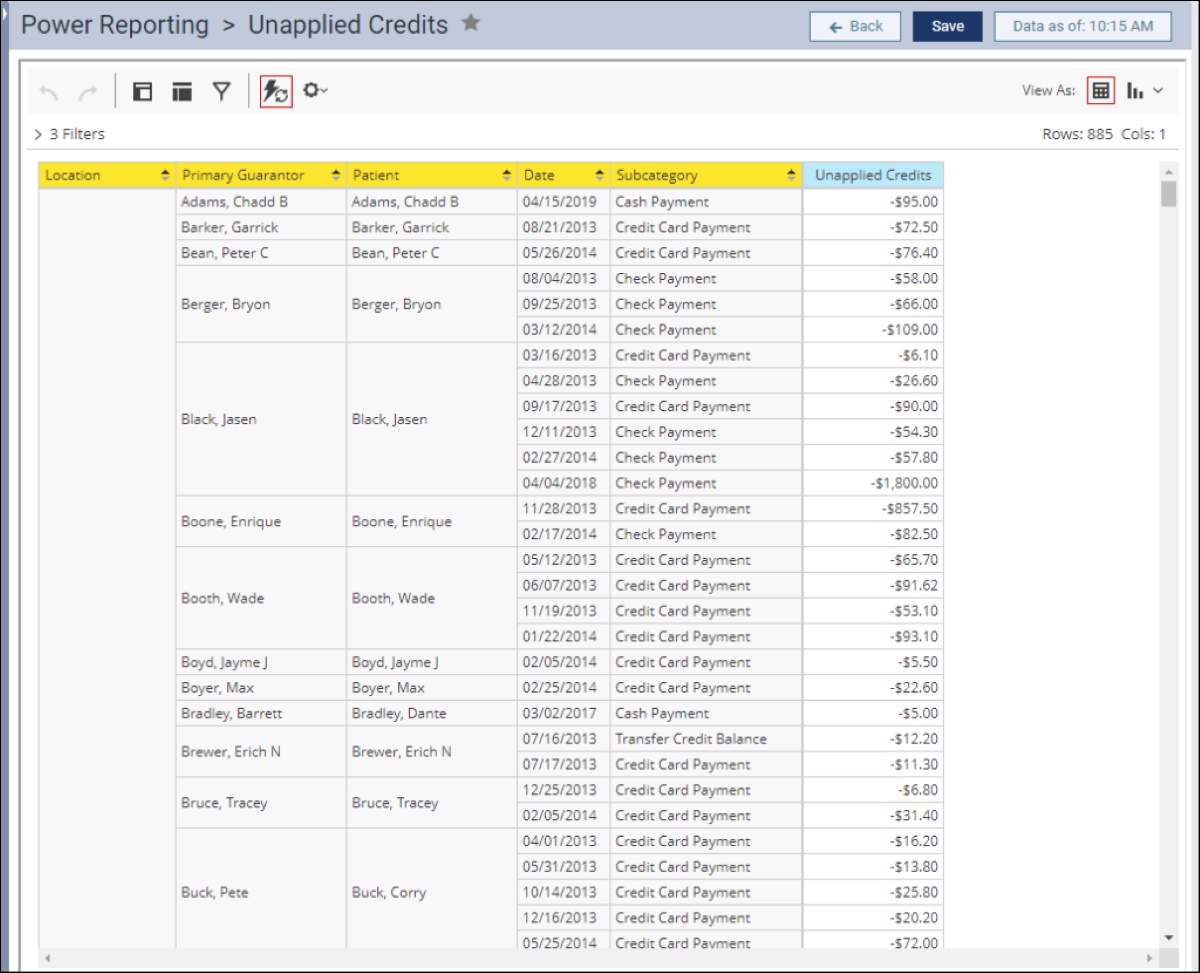

Finance
How To Invest In Wine Stocks
Published: January 19, 2024
Looking to invest in wine stocks? Discover the finance opportunities and strategies for investing in the wine industry.
(Many of the links in this article redirect to a specific reviewed product. Your purchase of these products through affiliate links helps to generate commission for LiveWell, at no extra cost. Learn more)
Table of Contents
Introduction
Investing in wine stocks can be an enticing option for those looking to diversify their portfolio and potentially tap into the profitability of the wine industry. Wine has a long-standing history as a luxury product and has been widely regarded as a safe investment asset class. In recent years, the wine market has experienced steady growth and has become an attractive option for investors seeking alternative investment opportunities.
Before diving into the world of wine stocks, it is important to have a solid understanding of the market and the factors that can influence its performance. Wine stocks can be a profitable investment, but they also come with their own unique set of risks and considerations. In this article, we will explore the various aspects of investing in wine stocks and provide you with valuable insights to help you make informed investment decisions.
Understanding Wine Stocks
Wine stocks are shares in companies that are involved in the production, distribution, or sale of wine. These companies can range from vineyards and wineries to wine retailers and distributors. When investing in wine stocks, investors are essentially buying a stake in these companies and participating in their financial performance.
It is important to note that wine stocks are influenced by both the general market conditions as well as the specific dynamics of the wine industry. Factors such as weather conditions, production volume, consumer demand, and regulatory changes can all impact the performance of wine stocks. Therefore, it is crucial to stay informed about industry trends and market developments when considering an investment in wine stocks.
Factors to Consider Before Investing in Wine Stocks
Prior to investing in wine stocks, there are several key factors to consider. Firstly, it is essential to assess your own risk tolerance and investment goals. Wine stocks can offer attractive returns, but they can also be subject to volatility. Understanding your risk appetite and financial objectives will help guide your investment strategy in the wine market.
Secondly, it is important to conduct thorough research and analysis on the companies you are considering investing in. Look into their financial performance, management team, market positioning, and competitive advantages. It is also beneficial to analyze industry trends, consumer preferences, and global wine consumption patterns to identify potential investment opportunities.
Lastly, it is crucial to stay updated on regulatory and legal considerations related to wine investments. Different regions and countries may have varying regulations and tax implications for wine industry investments. Familiarize yourself with the applicable laws to ensure compliance and avoid any unnecessary hurdles in your investment journey.
Understanding Wine Stocks
When it comes to investing in wine stocks, it is essential to have a clear understanding of what they entail. Wine stocks represent shares in companies that are involved in the production, distribution, or sale of wine. These companies can range from vineyards and wineries to wine retailers and distributors.
Investing in wine stocks allows individuals to participate in the financial performance of the wine industry. As with any type of stock investment, the value of wine stocks can fluctuate based on various factors such as market conditions, company performance, and industry trends.
It is important to note that investing in wine stocks is different from investing directly in wine, such as purchasing and storing bottles of fine wine. Wine stocks provide investors with an opportunity to have exposure to the wine industry without the need for physical storage or handling of wine itself. Instead, investors can benefit from the growth and profitability of wine companies without the logistical challenges associated with physical wine investment.
One advantage of investing in wine stocks is the potential for long-term growth. Wine has a strong historical track record as a luxury product and has demonstrated the ability to appreciate in value over time. As global demand for wine continues to rise, investing in wine stocks can be a way to capitalize on this growing market.
However, it is important to recognize that wine stocks, like any investment, come with their own set of risks. The wine industry can be influenced by factors such as weather conditions, grape harvests, changes in taste preferences, and economic conditions. These factors can impact the sales and profitability of wine companies, thus affecting the value of their stocks.
Additionally, investing in wine stocks requires ongoing research and monitoring. It is crucial to stay informed about industry trends, consumer preferences, and market dynamics to make informed investment decisions. This includes keeping track of key wine-producing regions, emerging markets, and changing consumer sentiment towards wine.
Investors also need to consider the financial stability and management competence of the wine companies they are considering investing in. Assessing the company’s track record, financial performance, and strategic initiatives can provide insight into its potential for growth and future profitability.
Overall, understanding wine stocks involves recognizing the opportunities and risks associated with investing in the wine industry. By conducting thorough research, staying informed, and assessing the financial health of wine companies, investors can make informed decisions and potentially benefit from the growth and profitability of the wine market.
Factors to Consider Before Investing in Wine Stocks
Prior to investing in wine stocks, it is crucial to consider several factors to make informed investment decisions and mitigate risks. Here are some key factors to take into account:
1. Risk Tolerance: Evaluate your risk tolerance and investment goals. Wine stocks, like any investment, come with a degree of risk. Consider how comfortable you are with potential fluctuations in the value of your investment.
2. Financial Stability of Wine Companies: Research and analyze the financial health of the wine companies you are interested in. Look for companies with solid financials, stable revenue streams, and a proven track record of profitability.
3. Industry Trends and Market Conditions: Stay updated on industry trends, market dynamics, and consumer preferences. Keep an eye on the global wine market and regional wine consumption patterns. Understanding market conditions can help identify potential investment opportunities.
4. Regulatory Considerations: Familiarize yourself with the regulatory and legal aspects of wine investments. Different jurisdictions may have specific regulations and tax implications related to wine industry investments. Ensure compliance and understand any potential restrictions or requirements.
5. Diversification: Consider diversifying your investment portfolio beyond wine stocks. Diversification helps spread risks and can provide a buffer against potential losses. Invest in different sectors, asset classes, and geographies to mitigate concentration risk.
6. Investment Horizon: Determine your investment horizon and the time frame you are willing to commit to wine stocks. Investing in wine stocks is best suited for long-term investors who are willing to weather short-term volatility for potential long-term returns.
7. Professional Advice: Consider seeking advice from financial professionals, such as financial advisors or wealth managers, who specialize in wine investments. They can provide guidance tailored to your financial situation and investment goals.
8. Liquidity: Understand the liquidity of wine stocks before investing. Liquidity refers to the ease at which an investment can be bought or sold. Ensure that you have an exit strategy in case you need to liquidate your investment quickly.
9. Research and Due Diligence: Conduct thorough research and due diligence on the wine stocks and companies you are considering. Analyze the company’s financial statements, their management team, competitive positioning, and growth prospects. This information will help you make informed investment decisions.
10. Monitoring and Reviewing: Stay engaged with your wine stock investments and constantly monitor their performance. Regularly review your portfolio to assess whether the investment aligns with your financial goals, risk tolerance, and market conditions.
By considering these factors, you can make more informed decisions when investing in wine stocks. It is important to conduct proper due diligence, stay updated on market trends, and seek professional advice to maximize the potential of your wine stock investment.
Types of Wine Stocks
The wine industry offers a range of investment opportunities, and understanding the different types of wine stocks is crucial for making informed investment decisions. Here are some common types of wine stocks:
1. Vineyards and Wineries: Investing in vineyards and wineries involves owning shares in companies that produce and sell wine. These companies typically cultivate their own grapes, produce the wine, and sometimes handle the distribution and sales as well. Investing in vineyards and wineries provides exposure to the entire wine production process, from grape cultivation to bottle sale.
2. Wine Retailers and Distributors: Wine retailers and distributors focus on the sales and distribution of wine. They source and curate wines from various vineyards and wineries, and distribute them to consumers, restaurants, and other retailers. Investing in wine retailers and distributors can provide exposure to the sales side of the wine industry, capturing the value chain beyond production.
3. Wine Technology Companies: Wine technology companies develop and provide innovative solutions for the wine industry. These can include platforms for online wine sales, wine education and tasting apps, wine cellar management software, and wine investment platforms. Investing in wine technology companies allows investors to capitalize on the growing demand for tech-driven solutions in the wine market.
4. Wine Investment Funds and ETFs: Wine investment funds and exchange-traded funds (ETFs) are investment vehicles that pool money from multiple investors to invest in a diversified portfolio of wine-related assets. These funds can invest in various segments of the wine industry, including vineyards, wineries, and wine-related technology companies. Investing in wine funds and ETFs provides a way to gain exposure to a broader range of wine stocks.
5. Wine Futures and En Primeur: Wine futures and en primeur refer to the practice of purchasing wines that are still maturing in barrels or tanks. Investors can buy these wines before they are bottled and released to the market. This type of investment allows individuals to potentially secure wines at a lower price and benefit from any potential appreciation in value once the wines are ready for sale.
6. Wine-related Supply Chain and Services: This category includes companies that provide services and products to the wine industry. It can include businesses involved in packaging, labeling, cork production, glass manufacturing, logistics, and storage facilities. Investing in companies that support the wine industry’s supply chain can offer indirect exposure to the sector’s growth.
It is important to note that the performance and risks associated with each type of wine stock can vary. Factors such as market conditions, consumer demand, and industry dynamics can all impact the profitability and value of wine stocks. Conduct thorough research, assess your risk tolerance, and consider diversifying your portfolio to mitigate risk.
By understanding the different types of wine stocks available, investors can choose the options that align with their investment goals and risk appetite. Whether it’s investing in vineyards and wineries, wine retailers and distributors, or wine-related technology companies, the wine industry offers a range of opportunities for those looking to enter this fascinating market.
Researching and Analyzing Wine Stocks
Researching and analyzing wine stocks is crucial to make informed investment decisions and maximize the potential for returns. Here are some key steps to consider when conducting research:
1. Company Performance and Financials: Start by assessing the financial health and performance of the wine companies you are interested in. Look at factors such as revenue growth, profitability, and debt levels. Analyzing financial statements, annual reports, and investor presentations can provide insights into a company’s financial stability and long-term prospects.
2. Market and Industry Analysis: Stay informed about the wine market and industry trends. Analyze market dynamics, emerging wine regions, and changing consumer preferences. Identify growth drivers, such as the increasing popularity of organic or sustainable wines, and evaluate how companies are positioned to benefit from these trends.
3. Competitive Landscape: Assess the competitive landscape within the wine industry. Identify key competitors and analyze their market share, product portfolio, and distribution networks. Understand how each company differentiates itself and the potential impact of competition on market share and profitability.
4. Management Team: Evaluate the management team of the wine companies you are considering. Look into their experience, track record, and strategic vision. A capable and experienced management team can greatly influence a company’s success and ability to navigate challenges in the industry.
5. Consumer Demand and Brand Perception: Understand consumer demand and brand perception in the wine market. Evaluate customer reviews, ratings, and awards. A strong and well-regarded brand can drive sales and provide a competitive advantage in the market.
6. Comparative Analysis: Compare and analyze the financial and operational performance of different wine companies within the same segment. Look at key metrics such as revenue growth rates, profit margins, and return on investment. This analysis can help identify companies that are outperforming their peers and have a competitive edge.
7. Risk Assessment: Assess the risks associated with investing in wine stocks. Consider factors such as volatile grape prices, weather events, changing consumer preferences, and regulatory risks. Understanding the risks involved will help you make informed decisions and manage your portfolio effectively.
8. Follow Industry Experts: Stay updated with industry publications, wine trade associations, and market research reports. Follow experts and influencers in the wine industry to gain valuable insights and perspectives on market trends and investment opportunities.
9. Consider Fundamental and Technical Analysis: Utilize both fundamental and technical analysis techniques to evaluate wine stocks. Fundamental analysis involves assessing financial and qualitative factors, while technical analysis focuses on historical price and volume data to make predictions about future price movements.
10. Seek Expert Advice: Consider seeking advice from financial professionals who specialize in wine investments. They can provide guidance tailored to your investment objectives and help identify potential opportunities in the wine market.
By conducting thorough research, analyzing financials, monitoring industry trends, and seeking expert advice, investors can make informed decisions when investing in wine stocks. Remember that investing in individual stocks carries risks, so diversification and careful analysis are key to managing these risks and maximizing returns.
Managing Risk in Wine Stock Investments
Like any investment, wine stock investments carry a certain level of risk. However, there are steps you can take to manage and mitigate these risks. Here are some strategies to consider:
1. Diversification: Diversify your wine stock portfolio by investing in a variety of companies across different segments of the wine industry. This can help spread the risk and minimize the impact of any individual company’s poor performance.
2. Research and Due Diligence: Conduct thorough research and due diligence on the wine companies you are considering. Assess their financial health, management team, competitive positioning, and growth prospects. Investing in companies with solid fundamentals and a proven track record can help reduce risk.
3. Stay Informed: Keep up-to-date with industry news, market trends, and regulatory changes. Stay informed about factors that can impact the wine industry, such as weather conditions, grape harvests, consumer preferences, and global economic trends. This information will enable you to make more informed investment decisions.
4. Assess Wine Quality: Evaluate the quality of the wines produced by the companies you are considering investing in. Higher-quality wines tend to have stronger consumer demand and better resale potential. Consider factors such as winemaking techniques, grape variety, region, and historical ratings and reviews.
5. Monitor Macro Risks: Pay attention to macroeconomic risks that can affect the wine industry, such as changes in exchange rates, trade policies, and global economic conditions. Major events like economic downturns or political instability can impact consumer spending and wine demand.
6. Long-Term Investment Horizon: Approach wine stock investments with a long-term perspective. Wine investments, like many other assets, can experience short-term fluctuations in value. By adopting a long-term investment horizon, you can better ride out short-term market volatility and potentially benefit from the growth of the wine industry in the long run.
7. Manage Liquidity: Understand the liquidity of wine stocks and have a plan for managing liquidity needs. Wine investments, particularly those tied to physical wine, may require longer holding periods or have limitations on selling. Consider how long you are willing to hold your investment and the potential impact on your overall financial situation.
8. Regular Portfolio Review: Regularly review your wine stock portfolio and reassess your investment strategy. Stay attuned to changes in company performance, market conditions, and your own financial goals. This will allow you to make adjustments as needed and ensure your investment aligns with your risk tolerance and objectives.
9. Consult Financial Professionals: Seek advice from financial professionals who specialize in wine investments. They can provide guidance tailored to your specific financial situation and help you navigate the complexities and risks of the wine market.
10. Budget and Risk Allocation: Determine an appropriate allocation of your investment portfolio to wine stocks considering your risk tolerance and investment goals. Set a budget for wine stock investments and avoid overexposing yourself to any single investment or asset class.
Remember that while these strategies can help mitigate risk, it is impossible to eliminate all risk. Investing in wine stocks still carries inherent uncertainties, and past performance is not indicative of future results. Always make investment decisions based on your own risk tolerance and seek professional advice when needed.
Choosing the Right Wine Stock Broker
When investing in wine stocks, choosing the right wine stock broker is essential to ensure a smooth and successful investment experience. Here are some key factors to consider when selecting a wine stock broker:
1. Reputation and Credibility: Look for a wine stock broker with a solid reputation and credibility in the industry. Research their background, licenses, and certifications to ensure they are authorized and regulated by the appropriate financial authorities.
2. Wine Industry Expertise: Seek a broker who has a deep understanding of the wine industry. They should be knowledgeable about wine market trends, key players, and industry dynamics. Having an expert broker can provide valuable insights and guidance when making investment decisions.
3. Range of Offerings: Consider the range of wine stocks and investment options offered by the broker. You may want a broker that provides access to a diverse selection of vineyards, wineries, wine retailers, and other related wine investments. This allows you to build a well-rounded portfolio tailored to your investment goals.
4. Research Tools and Resources: Assess the broker’s research tools and resources. They should provide you with access to comprehensive research reports, market analysis, and investment insights specific to the wine industry. These resources can assist you in making informed investment decisions.
5. Trading Platform and Technology: Evaluate the broker’s trading platform and technology. A user-friendly and reliable trading platform will enable you to execute transactions efficiently and access real-time market data. Additionally, the broker should provide secure and convenient methods for funding your account and monitoring your investments.
6. Customer Service: Consider the level of customer service offered by the broker. They should provide prompt and personalized support to address any questions, concerns, or technical issues you may encounter. Good customer service ensures a positive and seamless investing experience.
7. Fees and Commissions: Compare the fees and commissions charged by different wine stock brokers. Look for a broker with transparent fee structures and competitive pricing. Consider how the fees will affect your overall investment returns and choose a broker that aligns with your budgetary requirements.
8. Risk Management Tools: Check if the broker provides risk management tools to help you monitor and manage your portfolio effectively. This can include features like stop-loss orders or alerts to protect against significant price declines.
9. Regulatory Compliance: Ensure that the broker complies with all regulatory requirements in your jurisdiction. They should follow proper procedures for investor protection, adhere to anti-money laundering laws, and safeguard your personal and financial information.
10. Recommendations and Reviews: Consider recommendations and reviews from other investors or industry experts. Look for feedback on the broker’s performance, reliability, and customer service. This can provide insights into the broker’s track record and reputation.
Take your time to thoroughly evaluate different wine stock brokers based on these factors. Consider your investment goals, risk tolerance, and preferences when selecting a broker. Remember that choosing the right broker can significantly impact your investment experience, so it’s essential to make a well-informed decision.
Monitoring and Reviewing Wine Stock Investments
Monitoring and reviewing your wine stock investments is crucial to track their performance and make informed decisions to ensure your investment strategy aligns with your goals. Here are essential steps to consider:
1. Regular Portfolio Review: Schedule regular reviews of your wine stock portfolio. This allows you to assess the performance of your investments and determine if any adjustments are necessary. During these reviews, consider factors such as the overall portfolio value, individual stock performance, and any changes in market conditions.
2. Stay Informed: Continuously stay updated on industry news, market trends, and any developments within the wine market. Monitor factors that may impact wine stock investments, such as changes in consumer preferences, regulatory updates, or shifts in the global wine market. Being well-informed enables you to make proactive investment decisions.
3. Performance Analysis: Analyze the performance of your wine stocks based on your investment objectives. Assess metrics such as return on investment, dividend yield (if applicable), and stock price movements over time. By analyzing the performance, you can identify trends and patterns, enabling you to make informed decisions about retaining, adjusting, or exiting positions.
4. Research Companies: Continue researching the wine companies you have invested in, even after entering the position. Follow company news, financial updates, and any strategic developments. By staying informed, you’ll have a deeper understanding of their prospects and be better equipped to make decisions based on their financial health and future outlook.
5. Evaluate Risk-Return Profile: Regularly assess the risk-return profile of your wine stock investments. Consider how much risk you are comfortable with in relation to the potential returns. Review your portfolio allocation and determine if any adjustments need to be made to align with your risk tolerance and investment objectives.
6. Seek Professional Advice: Consider seeking advice from financial professionals who specialize in wine stock investments. They can provide insights and guidance based on their expertise and experience in the industry. Professionals can help you analyze your portfolio, identify opportunities, and offer suggestions on adjusting your investment strategy.
7. Monitor Industry and Economic Indicators: Keep a close eye on key industry and economic indicators that may influence the performance of wine stocks. Monitor factors such as wine consumption trends, economic indicators of wine-producing regions, and global economic conditions. These insights can help you make informed decisions based on the broader market landscape.
8. Assess Dividends and Corporate Actions: If investing in wine stocks that offer dividends, monitor and assess the dividend payments. Evaluate the dividend yield and track any changes in dividend policies. Additionally, keep track of any announced corporate actions, such as stock splits or mergers, which may impact your investment.
9. Document Your Decisions: Keep a record of your investment decisions, including the reasons behind them, the timing, and the outcomes. This documentation is valuable for analyzing your investment performance over time and learning from past decisions.
10. Realign Your Strategy: Regularly reassess your investment strategy and adjust it if necessary. Changing market conditions or shifts in your investment objectives may require adapting your portfolio. Be willing to realign your strategy based on new information and developments within the wine market.
By monitoring and reviewing your wine stock investments consistently, you can make informed decisions, optimize performance, and adapt your investment strategy to align with changing market conditions. Regular assessment and proactive decision-making are key to successful investment management.
Conclusion
Investing in wine stocks can be a rewarding venture for those seeking to diversify their portfolio and tap into the potential profitability of the wine industry. As with any investment, it is crucial to approach wine stock investments with careful consideration and informed decision-making. Understanding the nuances of the wine market, conducting thorough research, and actively monitoring your investments are all key to success in this unique investment sector.
Before delving into wine stock investments, take the time to assess your risk tolerance, investment goals, and time horizon. Consider the different types of wine stocks available, such as vineyards and wineries, wine retailers and distributors, wine-related technology companies, and more. Diversifying your portfolio across various segments of the wine industry can help mitigate risk and maximize returns.
Furthermore, researching and analyzing wine stocks is vital. Evaluate the financial performance of wine companies, stay informed about industry trends, and understand the competitive landscape. Take advantage of the resources provided by your broker, industry experts, and research reports as you make investment decisions.
Managing risk is an essential aspect of wine stock investments. Diversify your portfolio, stay educated about market trends, and regularly review and assess your investments. Seek professional advice when needed, keep track of industry and market indicators, and adjust your strategy as necessary. By effectively managing risk, you can position yourself for long-term success in the wine stock market.
Choosing the right wine stock broker is critical to your investment journey. Look for brokers with industry expertise, a wide range of offerings, reliable technology platforms, and good customer service. Comparing fees and conducting due diligence on their credibility and regulatory compliance will help you make an informed choice.
In conclusion, wine stock investments offer a unique opportunity to participate in the wine industry’s growth and profitability. By conducting thorough research, monitoring performance, and managing risk, you can navigate this specialized sector and potentially reap the rewards of investing in wine stocks. Remember to stay informed, adapt your strategy when needed, and seek professional advice to optimize your investment experience. With the right approach, wine stock investments can be a fruitful addition to your investment portfolio.














